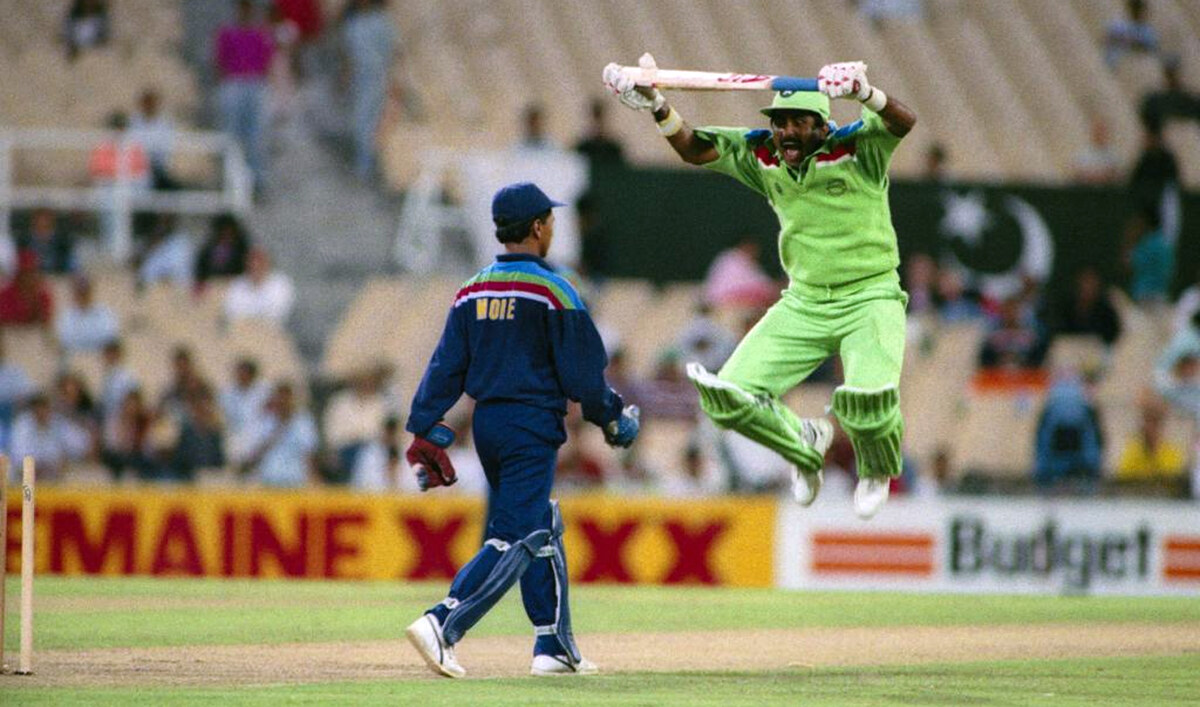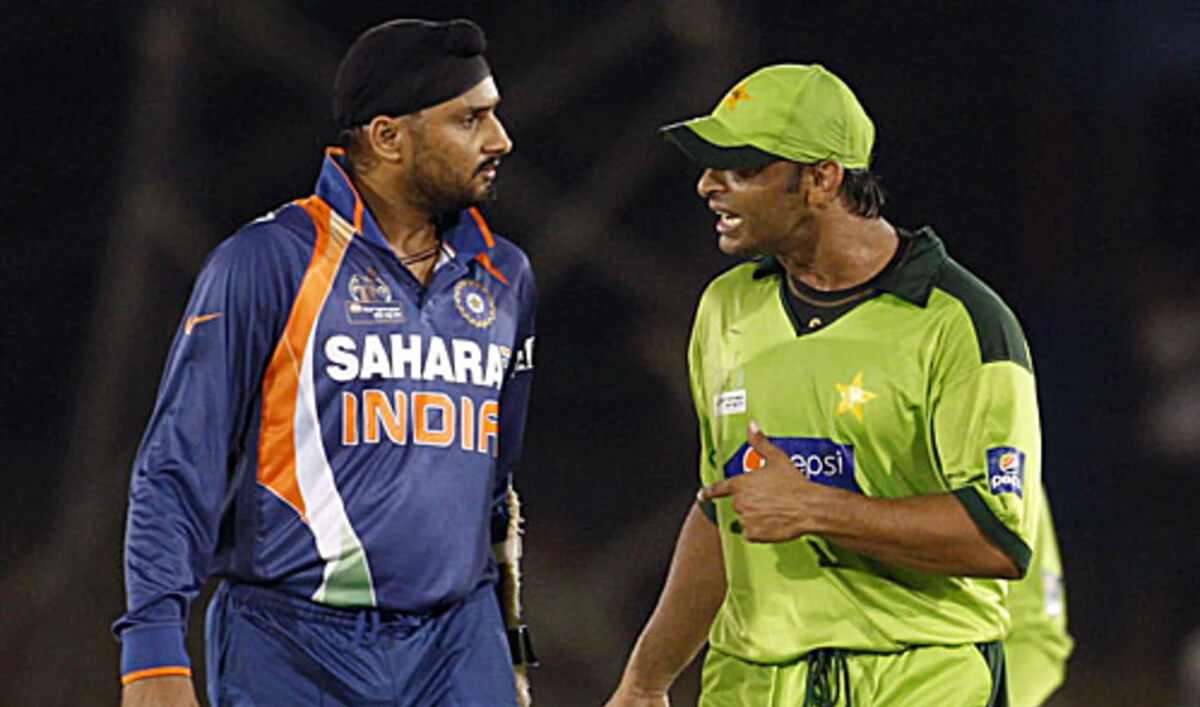ISLAMABAD: Pakistan’s Foreign Office said on Thursday Islamabad was not taking “for granted” the GSP+ status awarded by the European Union, saying there was a “robust” mechanism in place for the EU to supervise and coordinate implementation of Pakistan’s obligations under the special trade incentives arrangement.
The statement by Foreign Office Spokesperson Shafqat Ali Khan came after a report published by Pakistan’s Dawn newspaper said EU Special Representative for Human Rights, Olof Skoog, who is on a visit to Pakistan, had warned Pakistan “not to take its GSP+ status for granted.”
The GSP+ scheme grants beneficiary countries’ exports duty-free access to the European market in exchange for voluntarily agreeing to implement 27 international core conventions, including on human and civil rights.
Multiple developments on the human rights front have raised concerns over Pakistan’s GSP+ status in recent weeks. The EU last month openly criticized Pakistan for sentencing over 80 civilians in army courts after charging them for anti-government riots in May 2023 in which military installations were attacked, saying it was “inconsistent” with Pakistan’s international obligations.
This week, the country’s GSP+ status has once more been in the spotlight after parliament passed a controversial cybercrime law that journalists and digital rights activists have widely said aims to crackdown against dissent on social media platforms.
“In interstate relations, no one takes any state or any party for granted … EU remains a very important partner for Pakistan … It’s a rich and very comprehensive partnership ... and GSP+ is one component of this very rich relationship,” the foreign office spokesperson said at a weekly press briefing in Islamabad when asked about Skoog’s comments.
He said there was a “robust” implementation process to supervise and coordinate Pakistan’s, “follow-up or implementation of the range of treaties.”
“What we have put across [to the EU] is our perspective on whatever things are happening on our legislative front, for example, on PECA [Prevention of Electronic Crimes Act] or on the [military] trials … but this is an ongoing process. There is no one sitting in judgment on what’s happening in Pakistan. It’s a collaborative dialogue between two partners and friends.”
Talking to Dawn, Skoog said he had expressed the EU’s “apprehensions and concerns” about the use of military courts against civilians.
“I had that conversation and will continue having those conversations. Our view is that for civilians, there should be a civilian court system applicable… We have raised our concerns when there is an expansive use of military courts in response to demonstrations,” he said.
Skoog also spoke about this week’s passage of controversial amendments to the country’s cybercrime laws.
“This is happening while I am visiting the country… I have been discussing [this] with government officials. Our view is there should be very limited restrictions on freedom of expression,” the special envoy said.
“You can’t restrict freedom of expression just to protect the politicians, authorities or the system from being criticized, and these are the conversations we are having with Pakistan right now about where to draw the limits.”
The next round of the GSP+ scheme hinges upon what Pakistan does in terms of complying with its various international obligations, Skoog said, adding that it “cannot be taken for granted that [GSP+] will be there for the next round.”
In October 2023, the EU unanimously voted to extend GSP+ status until 2027 for developing countries, including Pakistan.
Pakistan says not taking EU’s GSP+ status ‘for granted’ amid multiple human rights concerns
https://arab.news/9za8c
Pakistan says not taking EU’s GSP+ status ‘for granted’ amid multiple human rights concerns

- The statement comes amid EU envoy’s visit to Pakistan, following bloc’s criticism of sentencing of civilians by Pakistani military courts
- GSP+ status in the spotlight again this week as parliament passed controversial cybercrime law to regulate social media platforms
Pakistan, Bahrain information ministers vow to strengthen media ties

- Bahrain is an important Gulf Cooperation Council member and a favorite destination for Pakistani workforce since the 1970s
- Attaullah Tarar says Pakistan’s economy is moving in the right direction and offers excellent opportunities for global investors
ISLAMABAD: Pakistan and Bahrain information minister have resolved to strengthen state media ties between the two countries, Pakistani state media reported on Friday.
The development came during Pakistani Information Minister Attaullah Tarar’s meeting with his Bahraini counterpart, Ramadan bin Abdullah Al-Noaimi, in Riyadh, on the sidelines of the Saudi Media Forum.
The two figures discussed relations between Pakistan and Bahrain, which were rooted in common faith, history and culture, the state-run Pakistan Television (PTV) broadcaster reported.
“Attaullah Tarar said exchange of media delegations is crucial for further strengthening cooperation in the field of media,” the report read.
“He suggested the sharing of news between Bahrain News Agency (BNA) and Associated Press of Pakistan (APP).”
Bahrain is one of the important countries in the Gulf Cooperation Council (GCC), and a favorite destination for the Pakistani workforce since the early 1970s, according to the Pakistani foreign ministry.
Both countries have established Joint Ministerial Commission (JMC) at the level of the foreign ministers, and the Pakistan-Bahrain trade volume has ranged between $500 million and $1 billion in recent years.
Tarar told his Bahraini counterpart that Pakistan’s economy, bolstered by a $7 billion International Monetary Fund (IMF) program, was moving in the right direction, saying there were excellent opportunities for global investors to invest in Pakistan.
“Bahrain’s Minister for Information said they value their relationship with Pakistan,” the PTV report read. “He reiterated Bahrain’s commitment to further strengthening cooperation in the media.”
In rare development, ex-PM Khan aides hold meeting with Pakistan chief justice

- Imran Khan’s aides say top judge asked for their input on draft National Judicial Policy
- Move part of reform agenda aimed to reduce pendency of cases, provide speedy justice
ISLAMABAD: Jailed former prime minister Imran Khan’s top aides said on Friday they had held a meeting with Pakistan Chief Justice Yahya Afridi, in a rare development to discuss drafting a National Judicial Policy.
The move comes days after Prime Minister Shehbaz Sharif met Afridi at his residence, with the top judge sharing the agenda of an upcoming meeting of the National Judicial Policy Making Committee and seeking the input of the government on the draft, according to the Supreme Court. The chief justice’s reforms agenda aims to reduce the pendency of cases and provide speedy justice to litigants.
Afridi had informed PM Sharif during their meeting that he would also be taking the opposition’s input and wanted bi-partisan support for his reforms.
Speaking at a press conference in Islamabad, Gohar Khan, the chairman of Imran Khan’s Pakistan Tehreek-e-Insaf, said the party had met the chief justice on his request to discuss the new National Judicial Policy.
“The chief justice of Pakistan had shared an agenda with us regarding National Judicial Policy and asked for our inputs on ten points,” Gohar said.
Last year, ex-PM Khan had written a letter to then Chief Justice Qazi Faez Isa, who retired in October, seeking judicial intervention into alleged rigging in the Feb. 8, 2024 national election and the subsequent allocation of reserved seats in the national and provincial assemblies, which the PTI says were unfairly allocated to their opponents.
After the election, the Election Commission of Pakistan had denied the PTI its share of 70 reserved seats in parliament, contending that Khan-backed independent candidates could not claim them. PTI candidates contested the polls independently after the party lost its election symbol in the run-up to election for not holding intra-party elections.
The Supreme Court later struck down the Election Commission of Pakistan’s decision on the reserved seats, calling it “unconstitutional” and ordering that reserved seats be allocated to the PTI.
“We also told him [Chief Justice Afridi] that no one regards SC order as a court order these days. SC orders are not being implemented be it senate elections or reserved seats,” Gohar said.
The PTI chairman added that the chief justice had assured the party of taking “certain measures” to address its issues.
Pakistan, currently bolstered by a $7 billion IMF facility granted in September, is navigating an economic recovery path even as it faces prolonged political crisis. Imran Khan, arguably the country’s most popular politician, has been behind bars since August 2023 in a slew of cases he says are politically motivated. His party has been leading a movement, including through street protests and sit-ins, to demand his release.
Pakistan arrests 30 suspects over attacks in northwest Kurram

- At least 130 people have died in sectarian clashes in Kurram since November
- Road closures around Kurram have caused shortage of food and medicines
PARACHINAR: Pakistani security forces raided several villages Thursday in a troubled northwestern region, arresting at least 30 suspects accused of deadly attacks on the country’s troops, police said.
In the restive southwestern province of Balochistan, separatists attacked a police post, killing two officers.
The arrests were made during a search operation in Kurram, a district in the restive Khyber Pakhtunkhwa province, where at least 130 people have died in recent months there in clashes between rival Shiite and Sunni tribes since November.
The district has been cut off from the rest of the country since November after authorities blocked roads following clashes between heavily armed tribes. Road closures around Kurram have caused a shortage of food and medicines there.
The operation was launched days after insurgents attacked aid trucks and killed five soldiers and a truck driver, according to Abbas Majid, a senior police official. He said officers also recovered some of the supplies looted by the suspects during recent attacks on aid trucks.
In the attack Thursday night in Balochistan, militants targeted a police post on the outskirts of Quetta, the provincial capital, triggering a shootout in which two officers were killed, local police chief Qasim Rodini said. He said an exchange of fire was still ongoing.
Earlier in the day, the outlawed Baloch Liberation Army claimed responsibility for the killing of seven passengers in an attack on buses in Balochistan on Tuesday.
The group said in a statement that its fighters attacked the buses in the town of Rakhni and claimed those killed were affiliated with the military and intelligence services. Local authorities dismissed the claim, saying the victims were civilians with no ties to security forces.
The Baloch Liberation Army, which operates mostly in Balochistan, has also targeted Chinese nationals working on multi-billion-dollar projects in the China-Pakistan Economic Corridor. Last year, the group killed dozens of people in three separate attacks on vehicles.
Balochistan has been the scene of a long-running insurgency with the separatists seeking independence from the central government in Islamabad. Although Pakistani authorities say they have quelled the insurgency, violence has persisted.
Five controversial India-Pakistan moments in ODI cricket

- Pakistan’s Javed Miandad always found a way of unsettling his opponents with his batting or sledging
- The two heavyweights clash in a blockbuster group match at the Champions Trophy in Dubai on Sunday
DUBAI: Pakistan and India clash in a blockbuster group match at the Champions Trophy on Sunday in Dubai.
AFP Sport looks at five controversial moments on the pitch between the arch-rivals in one-day cricket.
Pakistan’s Javed Miandad always found a way of unsettling his opponents with his batting or sledging, and a match against India at the 1992 World Cup was no different.
Excessive appealing by Indian wicketkeeper Kiran More seemed to have irked Miandad during Pakistan’s chase in Sydney.
The batter had a word with More, who was constantly chatting behind the stumps, before taking guard on a delivery.
Later, after completing a cheeky run, Miandad hopped like a kangaroo in a bid to imitate the glovesman in his appeals.

Commentators and fans saw the funny side but not Indian skipper Mohammad Azharuddin, who looked visibly furious at Miandad’s antics.
Opener Aamer Sohail was steering Pakistan’s chase in the 1996 World Cup quarter-final when a moment of rashness from the left-handed batter cost his team the game.
Chasing 289 for victory in Bengaluru, Sohail and fellow opener Saeed Anwar made the team race to 84 in 10 overs before Anwar departed.
Sohail kept up the charge as he hit Indian medium-pacer Venkatesh Prasad for a boundary and sledged the bowler with a finger pointed in the direction of the shot.

Prasad hit back, bowling Sohail next ball to a huge roar from the crowd and a send-off gesture from the bowler to derail Pakistan’s chase.
Pakistan’s usually cool Inzamam-ul-Haq infamously confronted an India fan in the stands at a match in 1997 at Toronto and the incident became a talking point for years to come.
Inzamam was standing at the boundary when an India supporter heckled the batter with chants of “Aloo” (Potato in Hindi), referring to the cricketer’s bulky frame.
When the calls became louder on a megaphone, Inzamam directed one of his players to bring a bat from the dressing room and was soon inside the stands to go after the heckler before security intervened.

Inzamam was reprimanded for the act and years later said the chants were personal and abusive.
India batsman Gautam Gambhir — now their coach — smacked Pakistan spinner Shahid Afridi for a boundary in a match in 2007 and words were exchanged before the two nearly came to blows.
Gambhir and Afridi refused to back down after some verbal volleys and the batter and bowler collided — seemingly on purpose — in between a run.
The two again had a go at each other with expletives clearly visible in dramatic TV images, before the on-field umpire intervened to douse the fire.
Gambhir and Afridi have kept up the rivalry even after retiring and indulge in ugly exchanges on social media on cricket and politics.
Pakistan speedster Shoaib Akhtar never backed down from a fight but in a duel with Harbhajan Singh at the 2010 Asia Cup the Indian spinner had the last laugh.

Akhtar bowled a dot ball to tailender Harbhajan in India’s chase and threw a few sledges, but that only triggered the batter to hit a six for an India victory in the final over off Mohammad Amir.
HarbHajjan celebrated wildly in front of Akhtar, who told him where to go.
Akhtar and HarbHajjan recently playfully re-enacted the moment on TV in a promotion video for the Champions Trophy.
Pakistan face India in Champions Trophy clash on Sunday with no room for error

- The neighbors only meet in multi-nation events because of political tensions and the match is taking place in Dubai after India refused to travel to Pakistan
- Pakistan were well beaten by New Zealand by 60 runs in the opening game of the competition in Karachi and need to beat favorites India to stay in the hunt
DUBAI: Pakistan face arch-rivals India in a Champions Trophy blockbuster on Sunday in front of a sell-out Dubai crowd knowing that another defeat will virtually end their title defense.
The neighbors only meet in multi-nation events because of political tensions and the match is taking place in Dubai after India refused to travel to tournament hosts Pakistan.
In front of what is expected to be a full house at the 25,000-capacity Dubai International Stadium, and with hundreds of millions more watching glued to their televisions, Pakistan are under pressure.
Mohammad Rizwan’s side were well beaten by New Zealand by 60 runs in the opening game of the ODI competition in Karachi and realistically need to beat favorites India to stay in the hunt for a semifinal spot in the eight-nation tournament.
New Zealand top Group A ahead of India — who beat Bangladesh on Thursday by six wickets — on a better run-rate. Pakistan are fourth and bottom of the group.
The top two teams from each of the two groups make the semifinals.
“If we want to win against the great teams of the world and be one of the great teams of the world we will have to bring consistency,” Pakistan batsman Salman Ali Agha said.
“We can’t play well in one game and bad in another.”
Pakistan chased down a record 353 against South Africa last week in a tri-nation tournament at home but in the final crashed to 242 all out in a defeat to New Zealand.
They suffered a big blow in the loss on Wednesday when their premier batsman Fakhar Zaman suffered a muscle injury. He has been ruled out of the tournament.
Imam-ul-Haq came in as replacement for a team that hammered India in the final of the previous Champions Trophy, in 2017.
That was India’s last defeat to Pakistan in an ODI match and Rohit Sharma’s men have since won five of the last six games against their greatest rivals, with one rained off.
They last met in a one-day game at the 2023 World Cup in Ahmedabad, with hosts India winning by seven wickets.
Another loss and an early exit for the hosts would take the gloss off the tournament, Pakistan’s first ICC event since co-hosting the 1996 World Cup with India and Sri Lanka.
In contrast, India lived up to their favorites tag against Bangladesh, chasing down a tricky 229 with 21 balls to spare in Dubai.
In-form Shubman Gill hit an unbeaten 101 for his second successive ODI century after pace spearhead Mohammed Shami returned bowling figures of 5-53.
Victory for India would put them on the cusp of the last four.
“After winning there is no point in having a mindset,” a confident-looking Shami said in response to a question on facing Pakistan next.
“You should stay in the same frame (habit) when you win a match and when you perform well. I don’t think you need to think too much about the ICC tournament or any international match.”
Fellow pace bowler Harshit Rana claimed three wickets in his team’s win and exuded the same confidence.
“It’s great to perform ahead of the Pakistan match and hopefully I can take this momentum forward,” said Rana. “But the Pakistan match is just another game for us.”
Nuclear-armed India and Pakistan have fought three wars since being carved out of the subcontinent’s partition in 1947 and that rivalry is often reflected on the cricket field.
Deteriorating political ties have meant the bitter rivals have not played a bilateral cricket series for over a decade.
India last visited Pakistan in 2008, for the Asia Cup.












